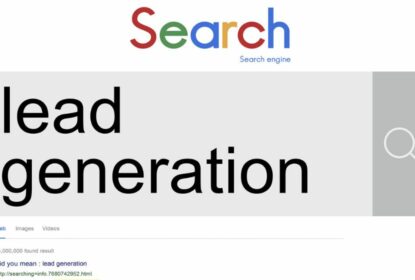SEO is where it’s at. If you don’t have SEO, why bother? You’ve heard all about it, but what exactly is SEO – and the big question you’ve been asking yourself – “Does my website need SEO when it comes down to it?”
SEO Explained
If you’re not sure how SEO works, you’ve come to the right place. After all, if you don’t know what it’s all about, how will you know if you really need it as part of your website and business? Let’s talk about the basics so that you feel you have at least some kind of grasp on how it all works.
The truth is, SEO (Search Engine Optimization) is somewhat complex, and the rules keep changing, making it even more difficult. As new technology is introduced, new regulations are put into place, and keeping up with news and new guidelines is a must!
Long story short, the answer to your burning question, “Does my website need SEO?” is a resounding YES! SEO is what brings people to your website. It’s what lets people see you in the first place. SEO puts you in the game when it comes to today’s digital domain.
Key Components of SEO
1. Keywords – What are keywords, and how do you know what keywords to pick for your website? The easiest way to think about it is what word(s) will people use to search for your business, product, or services online? It is important to choose keywords that would be searched for the most. For example, if you own a dog walking business, some keywords you could start with would be “dog, dog walking, puppy, pet walking, dog walking near [your town name],” and so on.
While keywords are where it all started, it’s still a crucial part of SEO and shouldn’t be forgotten. The biggest change that we’ve seen over the years is that keywords need to be researched and examined before just throwing it on your website. For it to be truly effective, it needs to be thoughtfully added to your content. Make sure to use keywords to boost the titles on your website, content, as well as web addresses.
2. Content – If you’ve ever tried to read up on a specific topic or product you’re thinking of buying, you’ve seen how often information is repeated. This is why you need quality content that is all yours. If your content is the same as everyone else’s, you’ll get the same low traffic as everyone else. You won’t stand out at all.
Originality can be tough these days with so many people writing about many of the same topics, but putting your own spin on your writing is where you can add your personality and creativity.
It can be tempting to produce as much content as possible for your website, thinking that the more content you have, the more people will want to visit your site. This may be true, but only if the quality of your content is worth reading. Not only does your content need to be interesting but it also needs to include keywords vital to drawing traffic your way.
Knowing your audience and what kind of content they are looking for is also critical. Are they looking for information, reviews, or opinions? Will your audience or potential customers respond better to a written blog post, video, social media post, or podcast?
3. Local SEO – We have seen how often we search for things on our mobile devices. When you’re out and about and need to find a great restaurant nearby, it’s so easy just to do a quick search to see what’s close by. This is an example of local SEO. You want to make sure that your website includes those local keywords as well as has location-specific pages on Google Maps and more.
4. Off-Page SEO or Reputation Building – Off-page SEO is most often done through backlink building. This is when you build backlinks to your site from other external sites. When this is done, it tells search engines that your website is more valuable and of better quality than others, adding to your ability to bring traffic in your direction. You can achieve this through the use of influencer marketing (using a celebrity or other influencer to market your product either directly or indirectly) or things like guest blogging on another business’ website.
5. Paid Marketing – Paying for marketing like ads on the side of an article, Google AdWords, pay-per-click, or even social media ads can be a significant part of your SEO and marketing strategy. This type of marketing can help you reach audiences you may not have been able to previously.
Does My Website Need SEO?
If you haven’t figured it out already, SEO is extremely important when it comes to a successful online business or successfully bringing attention to your business among all the other websites that exist. Increasing visibility so that people can easily find you and your product or services is key. That visibility grows as you take measures to rank higher on the results page when someone searches for what you’re offering.
When you rank higher on search result pages, the more chance you’ll have of being noticed and increasing clicks to your website. It’s all a cycle – the more you utilize the key components of SEO, the higher you’ll rank and the better visibility you’ll have. Increased web traffic is then the potential result that can lead to possible sales – Yahoo! Yes, your website needs SEO!
How Do I Get Started?
You put so much time and effort into your business, it’s time you took a substantial leap into the digital world and make sure you’re seen through SEO and other marketing efforts.
Once you’ve answered the question “Does my website need SEO?” for yourself and find you need some help getting started, contact ARYU Advertising. We can help build your business through our many advertising and marketing services. We look forward to hearing from you!










